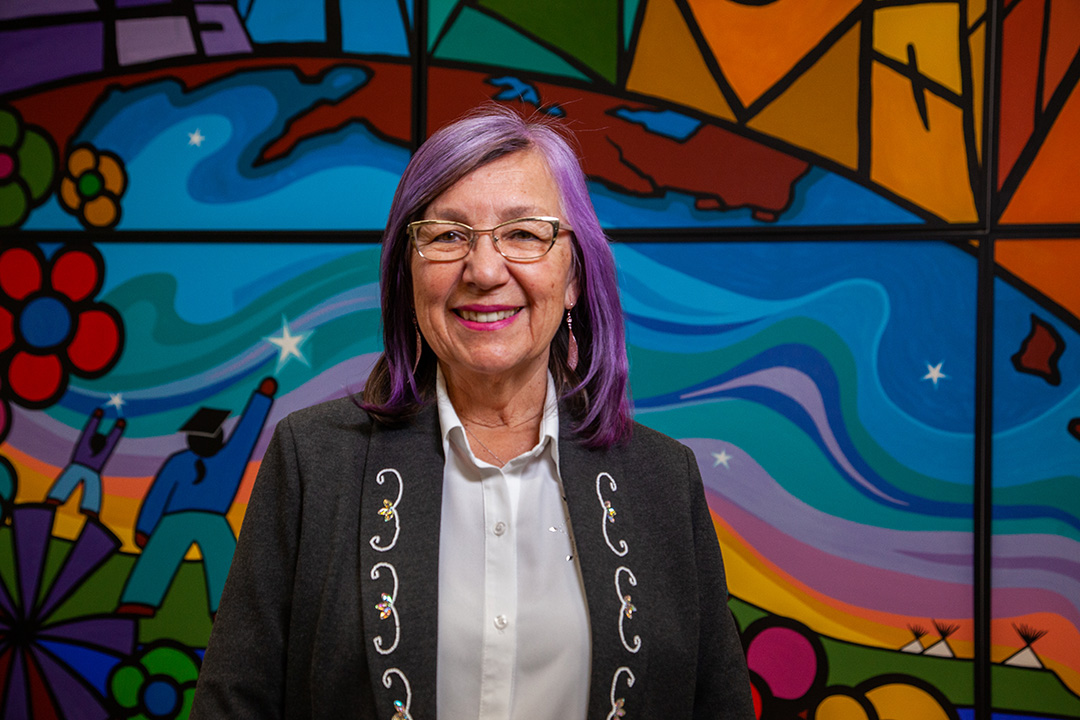
People of the Plan: Uplifting Indigenization
The work of influential individuals like Dr. Marie Battiste (EdD) is helping make the University of Saskatchewan (USask) a national leader in Indigenization.
By James ShewagaThe renowned Mi’kmaw scholar, knowledge keeper, and educator from Nova Scotia’s Potlotek First Nation has served as a professor in the College of Education for more than 25 years and is a supporter of the university’s commitment to Indigenization, reconciliation and decolonization. While the university has come a long way, Battiste said there is still plenty of work to be done.
“It’s with great pride that I go out and I tell about what kinds of things we are doing here and indeed we are, I would say, leaps and bounds ahead of most universities across Canada and we will continue to be because we have leadership who believe in this and are working very hard toward achieving these outcomes,” said Battiste, a Harvard and Stanford-educated leader in the Department of Educational Foundations at USask. “But I do think it still needs to grow and there is no end to it. And I think we need to build on the Indigenous languages that are a part of this province, because this is the kind of inheritance that this institution can draw upon.”
The commitment to uplift Indigenization is a key foundation of the new seven-year plan to strengthen the fabric of the university through respectful, meaningful, ethical weaving of First Nations, Métis, and Inuit knowledges, lived experiences, worldviews, and stories into teaching, learning, and research across campus.
“Having Indigenous people at the table of developing the policies and the practices and the principles of this university, having them at the table is a very different kind of framework that we are looking at,” said Battiste, who is a Fellow of the Royal Society of Canada and earned the university’s Distinguished Researcher Award in 2005 and a National Aboriginal Achievement Award in 2008. “If you are going to do Indigenization, it has to be with Indigenous people, it has to be from our perspective, and it has to be within our goals and aspirations for our futures.”
After hosting the first national forum—Building Reconciliation: Universities Answering the TRC’s Calls to Action—in 2015, Battiste said the university needs to continue to work on increasing Indigenous knowledges in courses across campus.
“Indigenous knowledges do not come from within a book and do not come from Euro-centric research. It comes from Indigenous peoples, from their continued living on the land and their continued relationships with each other,” she said. “The maintenance of those relationships is bound through ceremonies and those are the kinds of ways that Indigenous people maintain and keep their culture, language and heritage alive and well. And this institution has a role to play in making that possible for them to continue to build upon and grow.”
The University the World Needs
People of the plan
The University of Saskatchewan’s new seven-year plan through to 2025 is titled The University the World Needs and has been gifted the Indigenous names nīkānītān manācihitowinihk (Cree) and ni manachīhitoonaan (Michif), which translate to “Let us lead with respect.” In each issue of On Campus News in 2019, we will take a look at the 12 major goals of the new plan by profiling individuals involved in the university’s commitment to Courageous Curiosity, Boundless Collaboration and Inspired Communities.

